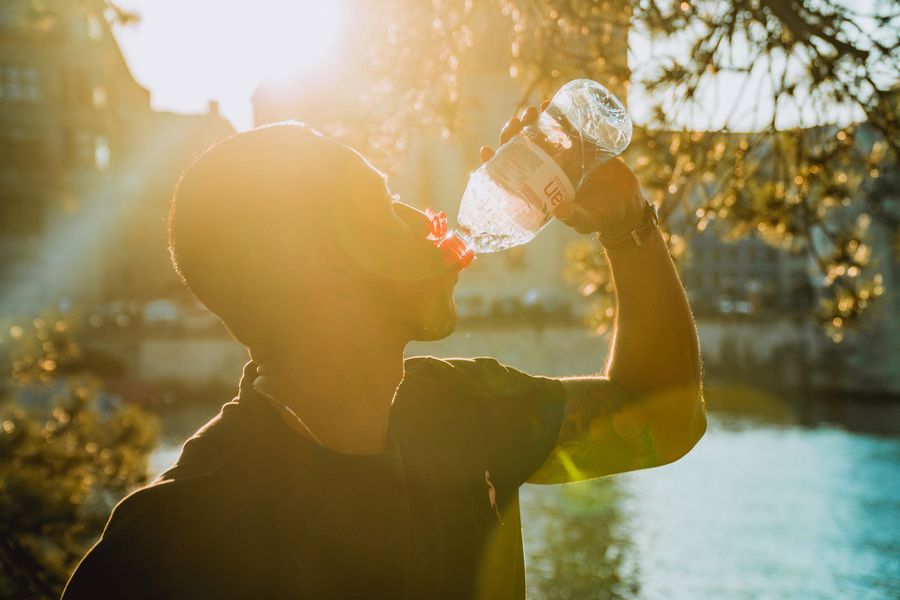Why Should You Never Refill a Plastic Water Bottle?

Why should you never refill a plastic water bottle? After all, water is essential to our survival, and we need to drink it daily. However, there are many reasons why refilling a plastic water bottle is not a good idea.
Why Should You Never Refill a Plastic Water Bottle?
You should never refill a plastic water bottle because it can leach chemicals into the water. Plastic is made from petroleum, and when it is heated, it can release harmful chemicals into the water. These chemicals can include bisphenol A (BPA), a known endocrine disruptor. BPA has been linked to various health problems, including reproductive issues, obesity, cancer, and diabetes.

In addition to leaching chemicals into the water, these bottles can also harbor bacteria. When you refill a bottle, you introduce new bacteria into the water. This can lead to illness, particularly if you are immunocompromised or have a chronic illness.
These bottles are also bad for the environment. They are made from petroleum, which is a non-renewable resource. In addition, unlike stainless steel bottles that can be recycled, plastic bottles are often not recycled, which means they end up in landfills. When in landfills, they can release harmful chemicals into the soil and water, making it difficult for plants and animals to thrive.
Detailed Reasons You Shouldn’t Refill Plastic Water Bottles
We need to be careful about the water we drink and the containers we use to store it. Many people have fallen into the habit of using plastic bottles and then throwing them away. Therefore, it’s important to be aware of the potential dangers of doing this. The following are reasons why you shouldn’t refill these bottles:
They Affect Your Hormones
The chemical compound bisphenol A (BPA) is one of the reasons why you shouldn’t refill these bottles. The compound is commonly used in manufacturing plastics and has been linked to various health problems in animals and humans.
The compound has been found to interfere with ovulation and reduce the quality of eggs in women and other animals. Studies in animals have also shown that BPA exposure can lead to obesity, insulin resistance, and diabetes.
They Harbor Bacteria
Another reason why you shouldn’t drink water from a refilled plastic bottle is that it can harbor bacteria. When you refill the bottle, you introduce new bacteria into the water. This can lead to illness, particularly if you have a weakened immune system.

If you must drink water from these bottles, make sure to clean them thoroughly before each use. Fill the bottle with hot water and add a drop of dish soap to it. Swirl the water around and then rinse the bottle several times with clean water.
They Are Bad for the Environment
These bottles can also have a negative impact on the environment. In addition, they are often not recycled, which means they end up in landfills and incinerators hence releasing harmful chemicals into the air.
Plastics can release harmful chemicals into the soil and water when in landfills. This can make it difficult for plant and animal life to thrive in the area. Also, remember that plastics do decompose, making them even more dangerous to the environment.
They Increase Expenses
Having to buy a new bottle every time you want to drink water can also add up. It’s much cheaper to invest in a reusable water bottle and fill it up with tap water. For instance, you can get stainless bottles from Hydro Cell that are designed to last for years.
These bottles are also better for the environment since they can be reused repeatedly. Therefore, you’ll save money and help the planet by using reusable water bottles instead of constantly buying new ones.
Alternative to Plastic Water Bottles
You should get worried when you hear about all the potential dangers of plastic water bottles. However, you don’t need to panic because safe alternatives are available. Here are some of the best options:
- Stainless steel water bottles: These bottles are made from high-quality food-grade stainless steel. As a result, they’re free of BPA and other harmful chemicals.
- Glass water bottles: Glass water bottles are free of harmful chemicals and won’t leach toxins into your water.
- Copper water bottles: These are also good compared to plastic water bottles which can leach harmful chemicals into the water.
Frequently Asked Questions
Is It Okay to Reuse Plastic Drink Bottles?
No, it’s not okay to reuse plastic drink bottles. These bottles have a very thin layer of plastic that’s designed to hold only one use, after which they start to break down and release chemicals into your drink.
What Happens if I Reuse my Plastic Bottle?
If you reuse your plastic bottle, it will start to break down and release chemicals into your drink. These chemicals can include endocrine disruptors, which have been linked to a number of health problems, including infertility, cancer, and congenital disabilities.
Conclusion
It is vital to avoid refilling plastic water bottles for both your safety and the environment's health. Instead, opt for stainless steel bottles that can be reused repeatedly and do not leach chemicals into your water. This way, you will reduce pollution and health risks.



